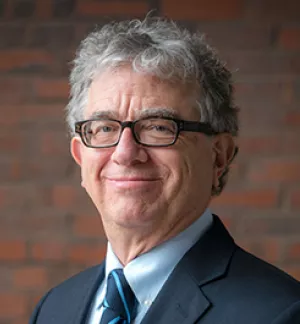The train of American electoral politics has gone further and further “off the rails” in recent decades. A number of suspected culprits have been identified as the specific fundamental flaw in the system that needs to be fixed. Gerrymandering. Campaign finance. Economic inequality. “False balance” in the media. It is strange that the public debate gives so much attention to these four explanations — and a few others like them. Those diagnoses don’t offer a ready remedy that is in the hands of the people.
There is one remedy that is directly in the hands of the people and that if applied can also fix the other flaws over time. That is voter turnout.
Many young people are disillusioned with the political system and feel that they have no power to affect political outcomes, being up against the rich and powerful. So they don’t register or don’t show up at the polls. The same is true of members of particular socioeconomic groups. Hispanics and Asian-Americans have particularly low voter turnout rates. [48 and 47% in the 2012 election, respectively, as compared to 64% for whites and 67% for blacks.]
Diagnoses of the fundamental flaw in American politics
One of the most common diagnoses of where American politics has gone wrong is the belief that too much money now goes to people in the upper 1% of wealth and that too much money in turn flows into politics. Actually, these two factors are distinct. Plenty of powerful interest groups use donations to get their way on individual issues of particular interest to them, without the concurrence of the upper 1%. The NRA is one example.
There is a lot of validity to concerns about money in politics. But it is worth noting that in US politics, money overwhelmingly goes – not into the pockets of corrupt officials – but rather into the advertising and get-out-the-vote drives of election campaigns. A citizen who stays home rather than vote his preference of the two major candidates has the same effect on the outcome as a fat-cat who gives money to the opposing candidate’s campaign.
What is to be done? We need a more equal distribution of income and a reversal of the Supreme Court’s decision on Citizens United, which opened the floodgates for political contributions by corporations. But the people can’t enact such policies directly. This year, as usual, the Democratic candidate favors policies that will promote economic equality alongside growth: a more progressive tax system, higher wages, universal health care insurance, and many more. With enough support in Congress, a second President Clinton would enact these policies. As usual, the Republican candidate is on record favoring the opposite positions: tax cuts for the rich, lower wages, and abolition of Obamacare. Similarly, the Democrats would like to reverse Citizens United. As usual, the Republicans are opposed. It is likely that Hillary Clinton would appoint Supreme Court justices likely to help eventually overturn the decision. And so on.
Other diagnoses have to do with the observation that so few congressional districts are in play in the general election, with most locked up by one political party or the other, giving incumbents an incentive to go to the extremes, since only the primary contest is a threat. In that case, the fundamental problem may be gerrymandering, the deliberate drawing of congressional district boundaries to maximize political advantage for one party or the other, rather than according to geographical sense. Electing more Democrats, at the state level, is an achievable pre-requisite to redistricting reform, more than the other way around.
If those citizens who think that people like them have no effect do exercise the ballot box, they can not only have an effect in this election but change the system for the future. If, on the other hand, they simply gripe to their friends or write angry blog posts (“the system is rigged”), rather than voting for a major-party candidate, they will indeed have no effect.
Voter turnout in other countries
The problem of low voter turnout does not apply to the US alone. Consider last June’s vote in the United Kingdom on whether to leave the EU. Most young folks were unhappy that the referendum came out in favor of Brexit. Almost 75% of voters aged 18-24 wanted Britain to stay in. They had come to see themselves as cosmopolitan citizens of Europe to a far greater extent than older voters had. Suddenly the English Channel has become much wider, and is likely to remain so for the rest of their lives. Who to blame? Only a third of that 18-24 age group turned out to vote, as compared to more than 80% of those over 65. The implication is that if the voter participation rate among the young had been even fractionally closer to the rate among the old, the outcome would have been in favor of Remain instead of Leave.
It is true that many other countries have figured out how to achieve higher electoral participation. Voting is mandatory, for example, in Australia and some other countries. The fine for noncompliance is very small. But Australia achieves 94% voter turnout, compared to an estimated 57% in the 2012 US presidential election. And the US is almost the only country to follow the anachronistic and inconvenient habit of scheduling Election Day on Tuesdays. Most countries vote on the weekend.
One might argue, however, that if any citizen is too lazy or uninformed or self-involved or uninterested in politics to take the trouble to vote, so be it. Why drag them to the polls? Perhaps it is just as well if the views of the uninformed or self-involved don’t carry as much weight as others! I am not going to take a position on this question one way or the other. Let’s consider only those citizens who are as informed and civic-minded as the rest of us, but are alienated by the system and think that “votes of people like them” don’t make a difference. There are, by far, enough of these people for their votes in fact to make the difference to the outcome.
Protest votes
By way of illustration, consider those who do go to the polls but feel alienated with America’s two-party system and so choose a protest vote for a third-party or write-in candidate, thus having the same effect on the outcome as if they had not voted at all. Ralph Nader, the Green Party candidate in the 2000 election, received 2.9 million votes. If a tiny fraction of them had gone to Al Gore it would have changed the outcome. The Democratic candidate officially lost Florida by 537 certified votes. Nader received 97,421 votes in Florida [1%]. Thus 1 % of his votes [974] would have made easily the difference. Not all Nader voters would have preferred Gore to Bush; but if one takes into account the evidence (which is that they would have favored him by almost two-to-one over the Republican candidate), the implication is that eliminating the Nader option in Florida would have given Gore a net boost of 17,548, more than 30 times what he needed to win!
Thus Gore would have received not only a majority of the vote among voters, as he did, but also a majority on the Supreme Court as well. It would have saved us eight years of George W. Bush and everything that flowed from his policies. What if one is suspicious enough to assume that those in power in Florida would have figured out a way not to count the additional votes in that state? The Nader vote In New Hampshire alone would also have been enough to give Gore a clear majority in the Electoral College.
Yes, I know, Nader argued that he was building a grass-roots movement for the longer term. In other words, causing Bush to become president by taking votes away from Gore in 2000 was worth the cost because now the Green Party survives …to elect Donald Trump president in 2016 by taking votes away from Hillary Clinton, and so on every four years!
Obama said it at the Democratic National Convention in July, when a few delegates booed the mention of Trump’s name: “Don’t boo. Vote!” It’s trite, but true. Voting is the solution to what ails America.
Frankel, Jeffrey. “A Radical Solution to the Fundamental Flaws in US Politics: Vote!.” September 26, 2016





